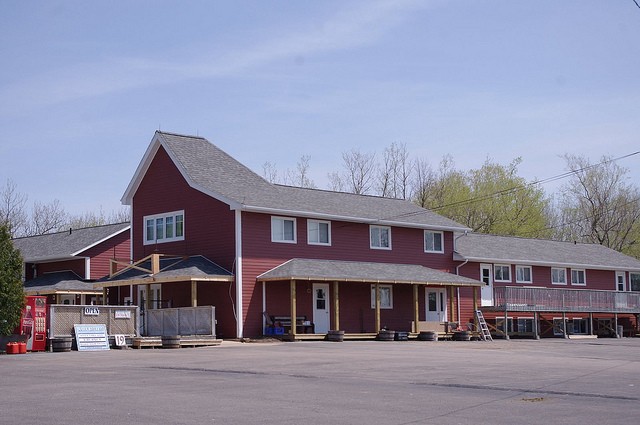How Kate Beaton Does Money

Cartoonist Kate Beaton recently did an interview with Chris Mautner at The Comics Journal in which she discussed the way money, and growing up in rural Nova Scotia, affected her decision to pursue art and webcomics:
Mautner: What did your parents do for a living when you were growing up?
Beaton: My mom worked in a bank, and my dad is a butcher at the store.
Mautner: Were they supportive of your interest in the arts?
Beaton: Very. And my mom tried really hard to give me opportunities because there was nothing there really. We didn’t even have art classes. She made an effort to put me in things like 4H, so there would be like painting classes or whatever art-related stuff, [she would] make sure that I got into those. And she used to set me up with anyone that did local art, talk to them and show them my work. There was one painter in my town, Peter Rankin. He’s a fisherman but he’s a self-taught painter. His paintings are really good. He taught kids art lessons when I was really young. He always checked in with me, like “How’s that art coming?” You know the way that small towns can be. And I always felt very supported in that.
But at the same time, because it’s this rural place with not a lot of opportunities, and the Nova Scotia economy is a terrible time all the time, there wasn’t — if I said, “I want to be an artist,” a lot of people would have been like, “Are you sure? Being a nurse is much safer, being a teacher.” They believe in your talent, but …
Mautner: They don’t see it as a career.
I also grew up in a small rural community, and I remember experiencing a kind of culture shock when I left my hometown and realized there were so many jobs out there that I had just never been exposed to. Our school had a Career Day every year, and the adults always represented the same handful of careers: teacher, nurse, truck driver, farmer, banker. Once we had a news anchor from the next town over, and that was a big deal.
Beaton explained what life is like in a rural area:
People make fairly safe moves there, which is what happens when you’re in an economically disadvantaged place. Risks are for privileged people with money to fall on their face if it doesn’t work out.
Then she said:
It’s kind of born into [you], a carefulness about life.
I read that and thought: Yes. Me too. Even though I have made many leaps of faith in my life, I understand that feeling of carefulness. There’s a reason rural Midwestern culture is a Guess Culture instead of an Ask Culture. Guess Culture, to quote Metafilter, means “you avoid putting a request into words unless you’re pretty sure the answer will be yes.” It works the same way for dreams. As Beaton put it:
I didn’t try to make it in comics until I had paid off my student loan and saved a pile of money, to make sure I wouldn’t starve.
This was after she had built up an audience, by the way, and after she had been invited to sell T-shirts and merch at TopatoCo. It reminds me of how I waited to make my own creative leaps until after I got myself out of debt and saved $10,000. (I’m back in debt now, and I only have $2,300 in savings. Blame it on moving to the big city.)
Before becoming a full-time cartoonist, Beaton worked as a maid, as an administrative assistant at the Maritime Museum of British Columbia, and on a mining site at Fort McMurray. If you haven’t read her five-part comic Ducks, illustrating working life at the mine, take some time to read the whole thing.
Photo credit: Inverness County C@P Network Society
Support The Billfold
The Billfold continues to exist thanks to support from our readers. Help us continue to do our work by making a monthly pledge on Patreon or a one-time-only contribution through PayPal.
Comments